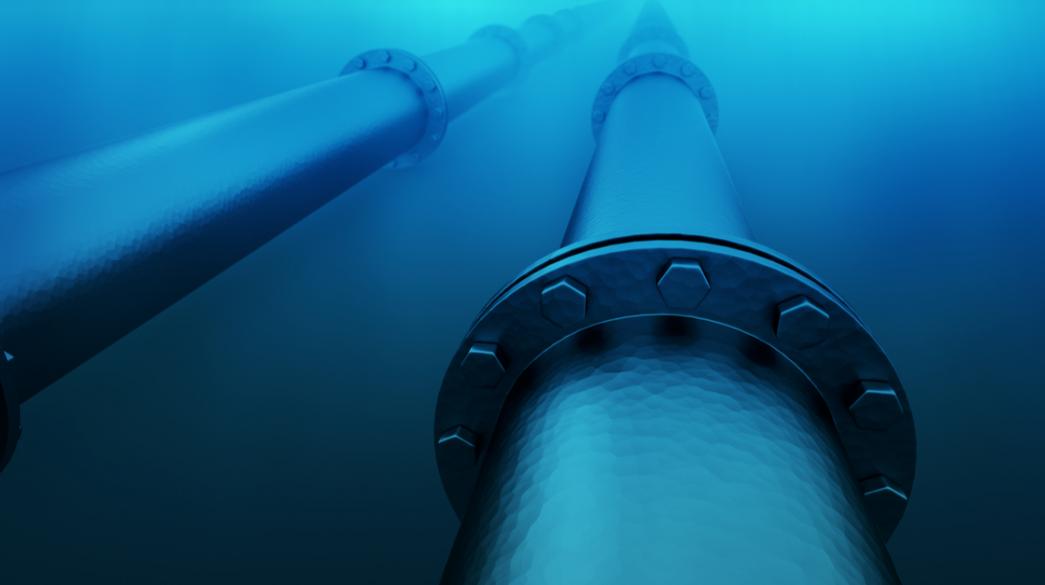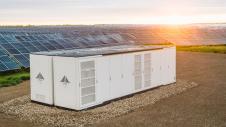Officials from Greece, Israel and Egypt have been moving ahead with preparations for the EastMed pipeline at both a technical and financial level, in a bid to secure the natural gas reserves needed to make the pipeline viable.
Steps taken show that the plan is taking shape, however, despite expectations, the reality is that the pipeline has still a long way to go.
The bill ratifying the agreement between Greece, Cyprus and Israel, was approved in parliament earlier this week, together with a series of developments on licensing and finance issues, confirming efforts made so far. However, we are far from considering that the EastMed is a viable pipeline that can turn Greece into a strong energy player in the Eastern Mediterranean.
First of all, a lot depends on decisions that Israel and Cyprus have yet to make on the quantities that will be committed from existing and potential natural gas deposits, as Energy Minister Kostis Hatzidakis admitted in parliament. Most importantly, however, the progress of any process depends on an end to the crisis that is shaking the global power industry, without anyone risking predictions about when it will end.
A blow from low oil prices
At a time when oil companies are collapsing, seeking state support and almost every new drilling has been frozen from one end of the world to the other - the same applies for Cyprus and Israel. Talking about a project whose sustainability will depend on deposits in the eastern Mediterranean with a capacity of 10 billion cubic meters per year and an estimated budget of close to 7 billion euros shows how far the project has yet to go.
A project that, when completed, seven years after it is launched, will be the longest and deepest pipeline on the planet, with a length of 1,900 kilometers and a depth of about 3,000 kilometers, meaning that it will be extremely costly. This means that whichever oil company chooses to invest in it will have to make sure that they recover their capital out, otherwise, they won't get involved.
But at $29 a barrel, drilling at such depths is unprofitable. According to a Rystad Energy survey, the bottom limit on the price of oil below which drilling ceases to be profitable, depending on the characteristics and depths of each field, is $45-50. With the current prices and at a time of large shocks in the industry, where major oil companies are losing billions of dollars, no one is willing to invest in such a project.
Then there is the issue of securing sufficient quantities to make this ambitious project viable. The decision to build the project, which, if implemented, will transport natural gas from Israel and Cypriot through Crete, to Italy and then onto Western Europe, is based on finding enough gas in the region to justify costs.
Deposits discovered in Cyprus are not enough, so natural gas from Israeli is also needed. Israel, however, is maintaining a vague position on the issue. While it had previously vowed to provide EastMed with large quantities, the country seems to be having second thoughts, possibly due to internal disagreements over whether it is in its interests to do so.
Four important steps coming up on the project are:
- The start of the licensing procedures in early March by the Ministry of Development, with the Cypriot authorities being at a similar phase.
- The collection of 13.8 million euros of EU funds for the project by the joint venture overseeing the project, the IGI Poseidon consortium (DEPA-Edison). This is part of a total 34.5 million euros committed by the EU. to finance the final feasibility study (FEED). Its total cost is 69 million euros.
- The commitment by DEPA of the necessary funds amounting to 16 million euros, ie those required to finance its participation in the study. This decision will be approved by DEPA shareholders in coming days.
- An open invitation issued by IGI Poseidon a few days ago through a competitive dialogue process to select two candidate contractors for the design, supply, construction, transport, installation and initial operation of the four offshore sections of the pipeline stretching 1,470 kilometers long.









